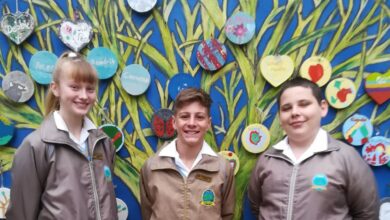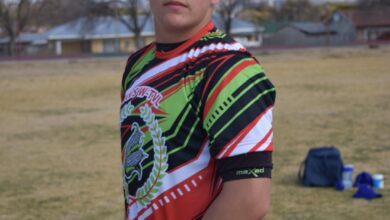Equal opportunities needed for the disabled
South Africa prides itself on having one of the best constitutions in the world where all people are entitled to equal opportunities. December marked International Month of Disabled Human Rights. In our country disabled persons are nowhere near having equal opportunities to quality of life especially jobs, education, access and transport. There are approximately 380 …
South Africa prides itself on having one of the best constitutions in the world where all people are entitled to equal opportunities. December marked International Month of Disabled Human Rights. In our country disabled persons are nowhere near having equal opportunities to quality of life especially jobs, education, access and transport.
There are approximately 380 000 blind people and over one million people suffering from low vision in South Africa (reference SA Guide Dogs Ass).
With over 80 organisations working in the sector to get equal opportunities and improve the lives of the blind and vision impaired – the battle is an uphill struggle as the scramble for limited resources continues.
Retina South Africa is a voluntary, patient run organisation which is dedicated to fundraising for a cure for the 150 000 people in South Africa suffering from retinal degenerative disorders such as Retinitis Pigmentosa, Stargardts and Macular Degeneration.
While the hunt is on for a cure, patients have to contend with day tot day life.
The biggest challenge is lack of jobs and transport for blind/vision impaired persons. While the law states that between 2-5% of all workforce must be from the disabled sector, corporates often tend to employ, physically disabled persons rather than blind/sision impaired persons. Even when these people are emplyed, the infrastructure and technology is not available to meke them compete equally with their sighted colleagues. There are fantastic computer programmes, cell phones and magnifiers available that can assist blind/low vision persons do the job just as well as anyone else.
Programmes such as JAWS and Zoom text, large print keyboards, voice activation software and e-readers are all easily available but most companies are not interested to spend their budget on it.
The other challenge blind/low vision persons experience in South Africa is lack of accessible transport.
It is well documented that our public transport system is ageing and dangerous even for able bodied persons. The government funded transport systems for disabled persons such as Dial a Ride do not recognize blind/low vision persons as being disabled.
So the only options are friends, family or meter cabs whih can turn out to be very expensive.
In other countries such as Australia, the government gives free bus/train passes to vision impaired persons as well as taxi vouchers to use where there is no public transport. They are allowed two train passes a year to go away on holiday, not only for themselves but for a companion as well.
Furthermore, the Australian government gives a disability pension even if they have a job, recognizing that as a disabled person you have extra expenses and often have to pay others to do everyday things such as cleaning, gardening and shopping.
They are also entitled to a carer’s allowance, computer equipment, lighting installations and all sorts of other benefits.
South Africa has a long way to go to be able to offer this to its disabled citizens.
Ordinary South Africans need to be educated on identifying and assisting blind/vision impaired persons.
Most people think that if you have a white cane there is something wrong with your leg! Even people working in shops, airports, hospitals, where you would expect that they have been trained to recognize and assist blind/low vision persons, have no clue how to do this.
As one low vision sufferer said – as she was checking out at her local supermarket the ashier asked what her badge meant. It state Vision Impaired Person (VIP).
Blind/low vision persons want to be part of society and want to put their weight behind building a new and brighter South Africa, but without the basic requirements and access to opportunities. It is obvious that it will take a very, very long time before this becomes a reality.
Retina South Africa want to salute all those activists working behind the scenes to ensure the human rights of the disabled especially those working in the blind/vision impaired sector and those affected individuals that continue to strive for equal opportunities for blind/low vision persons.
For more information on Retina South Africa please visit www.retinasa.org.za or call 0860 595959.




